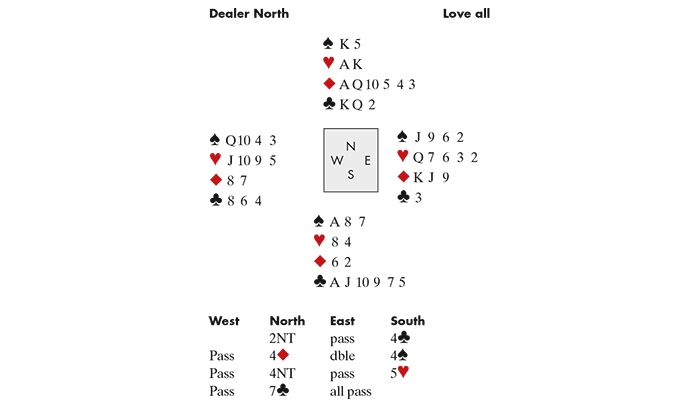Just take the money! That’s the philosophy of many rubber bridge players when it comes to bidding — or rather not bidding — grand slams. Why risk going down in seven when a small slam will net you a large enough gain? I’m not of that school myself: so long as I trust my partner, I can’t bear to stop short of bidding grand slams. But trust — ah, there’s the rub. Who can you trust? Playing for £10 a hundred at TGR’s recently, I cut Maurice Esterson as my partner. I’ve known Maurice for 20 years, I like him enormously, and I trust him completely. He trusts me too. Unfortunately, on this deal, it was his trust which proved unfounded:
Maurice opened 2NT and I bid 4♣ — a slam try. He cue bid 4♦ (which could be an ace or a king) and East doubled. I contemplated passing to see whether Maurice would redouble to show first-round control (any other bid would deny it), but decided to bid 4♠ to show concern about hearts. After all, we could bid Blackwood to check for aces. Maurice did: I showed two, and he bid 7♣. West led a diamond — and I went the inevitable one down. ‘You knew the diamond finesse would be wrong, so why bid seven?’, I asked. But, as he and the experts in the room pointed out, I was mistaken. I hadn’t realised that the double had given me a chance to describe my own hand further, and that by bidding instead of passing, I had practically announced that I had a singleton (if I didn’t, we might be going down on a diamond lead had Maurice held the ♦K, not the ♦A). He had evaluated his hand accordingly: there were enough entries to dummy to ruff and establish diamonds. His bid was justified — and now I must win back his trust!






Comments